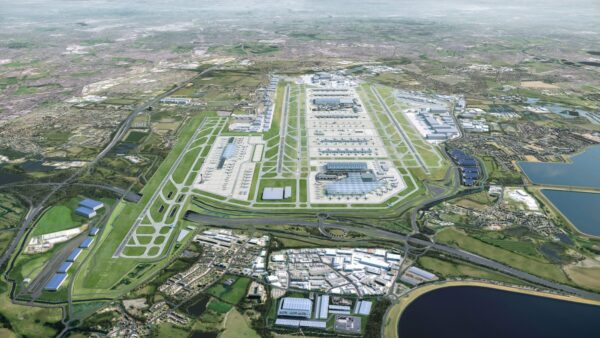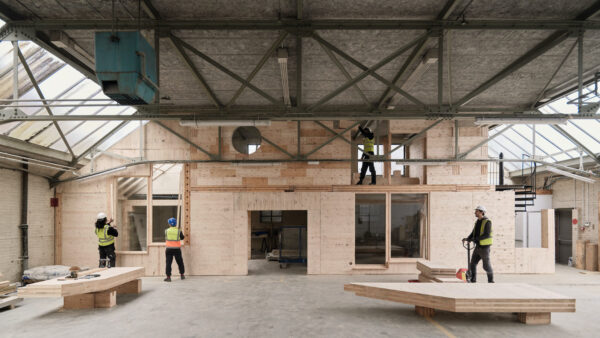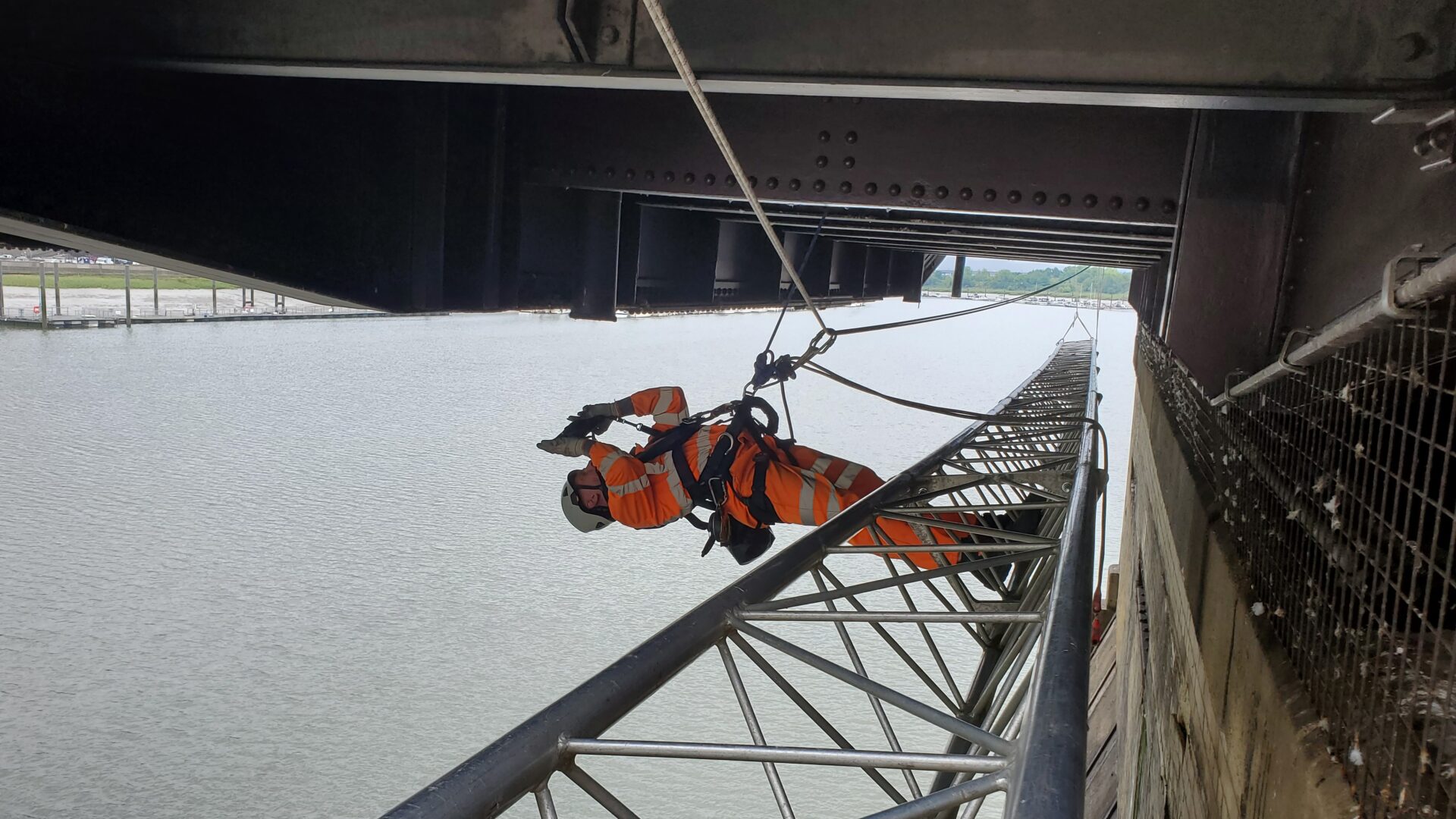
Bridge inspectors are using skilled rope access techniques to conduct a detailed survey of the Grade II-listed Rochester Old Bridge.
Rope access specialist company Up and Under and sister company CAN Structures, both part of the RSK Group, are carrying out the inspections as part of a six-year contract with the Rochester Bridge Trust to monitor its assets.
Work is being undertaken during off-peak hours and overnight to limit disruption to the public.
The 150m-long cast iron, steel and concrete bridge connects Rochester and Strood, carrying the A2 over the tidal River Medway.
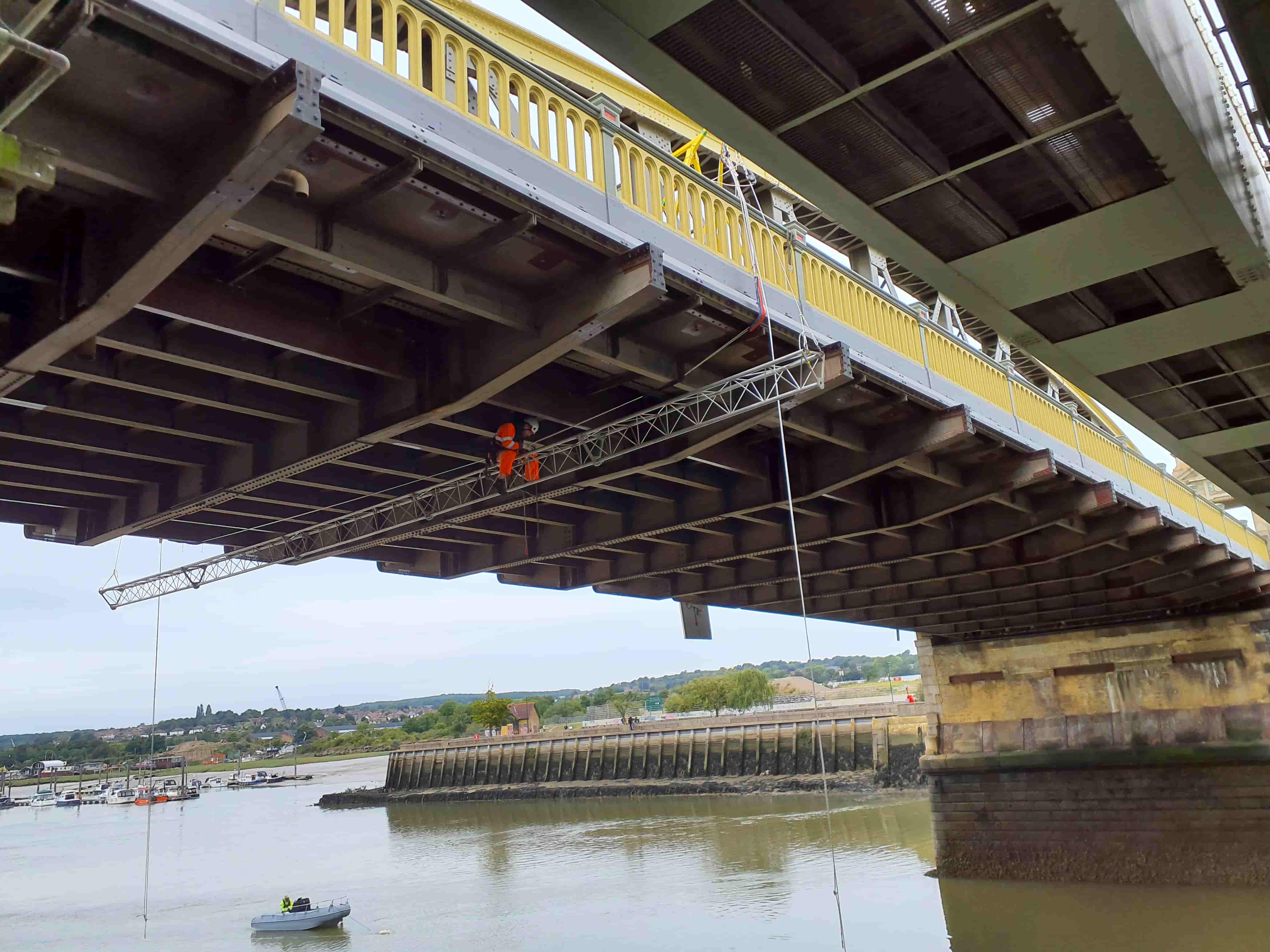
National guidance
The bridge, which was built in 1856, requires regular inspections in line with national guidance to ensure its continued safe operation.
The inspection follows the guidelines of DMRB Standards (in particular, CS 450 Inspection of Highway Structures) and the Inspection Manual for Highway Structures.
Up and Under project director, Miles Hulse, said: “Principal inspections require a within-touching-distance examination of all parts of the bridge structure.
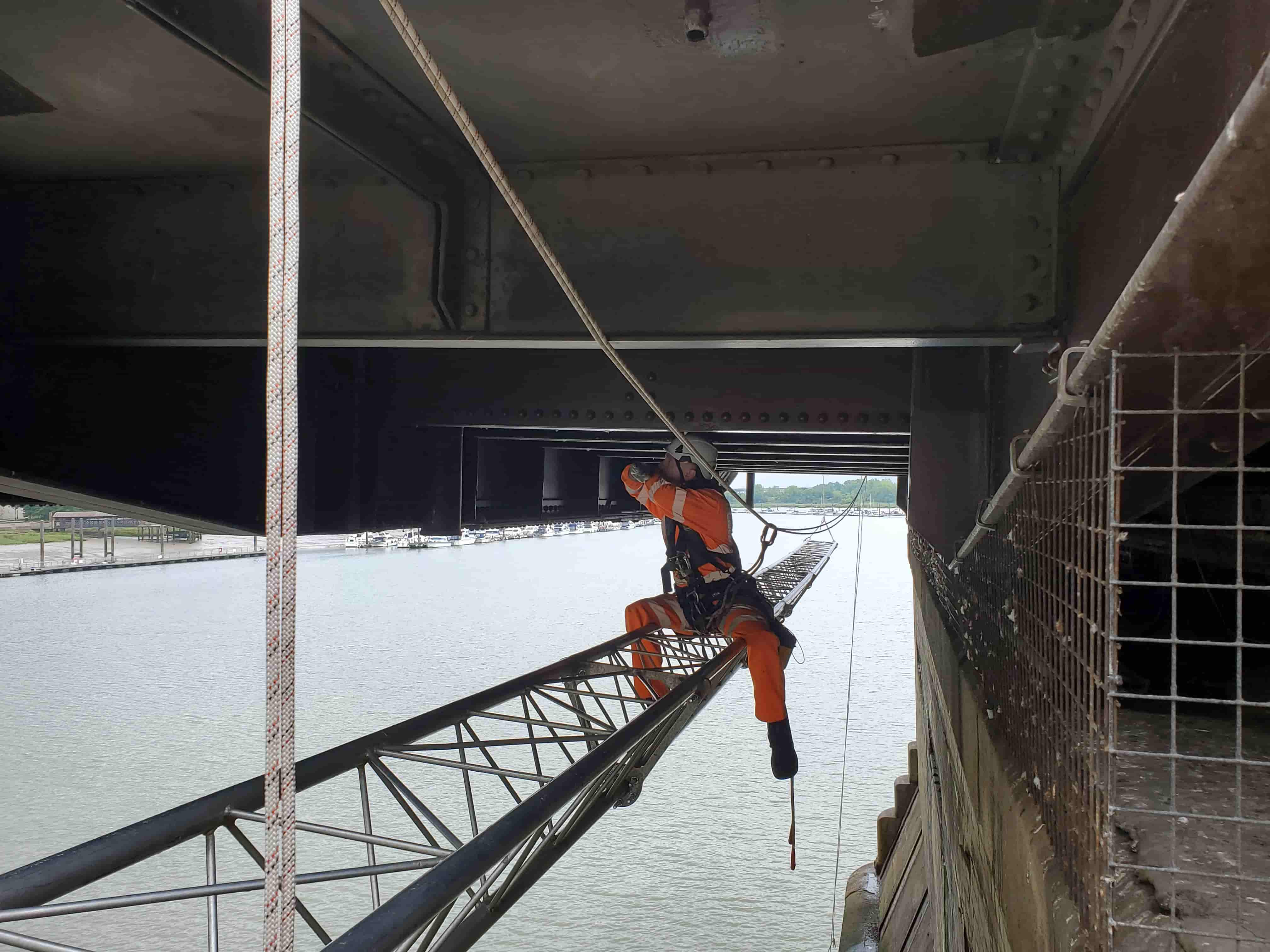
“To do this, a team of Bridge Inspection Certification Scheme (BICS) certified inspectors and Industrial Rope Access Trade Association (IRATA) rope access specialists will utilise rope access techniques to gain access to the areas over the River Medway.
“Over a four-week period of day and night shifts, inspectors will inspect the full extent of the bridge. Compared to the New Bridge, which we inspected last year, the historic construction of the Old Bridge makes it more challenging to closely inspect the below deck elements.”
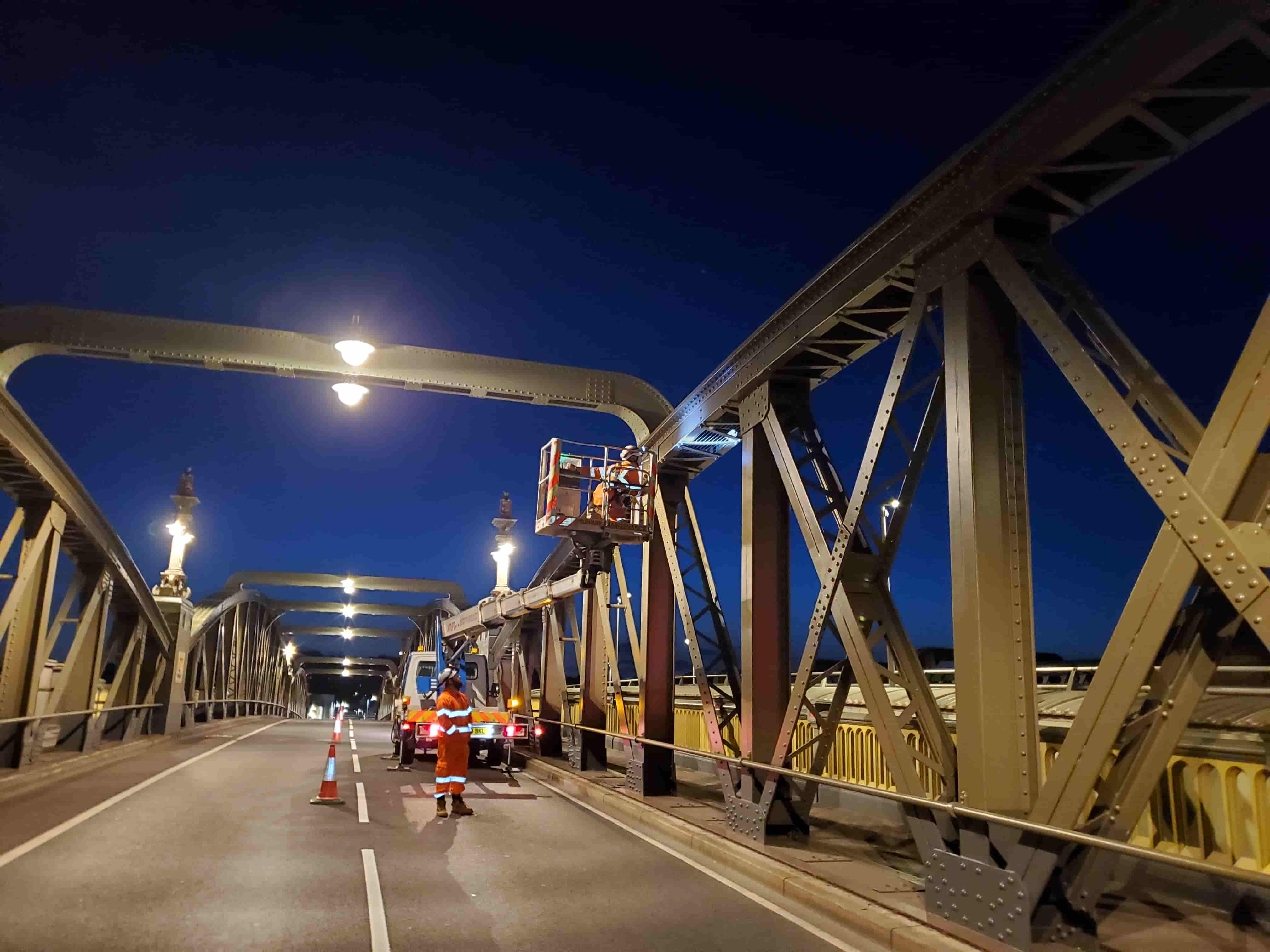
Hulse said that to overcome this challenge, CAN is using its access system to provide a stable platform beneath the bridge to work from.
He added: “Rope access trained inspectors can work more efficiently from this movable platform, which mitigates the need for temporary scaffolding or directly attached structures that might damage the protected bridge.”
Rochester Bridge Trust will use the findings from the inspection to inform future maintenance and monitoring of the bridge’s condition.




